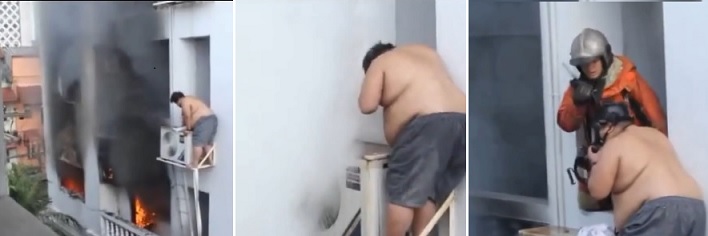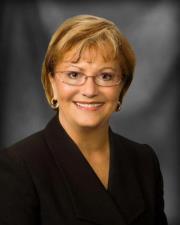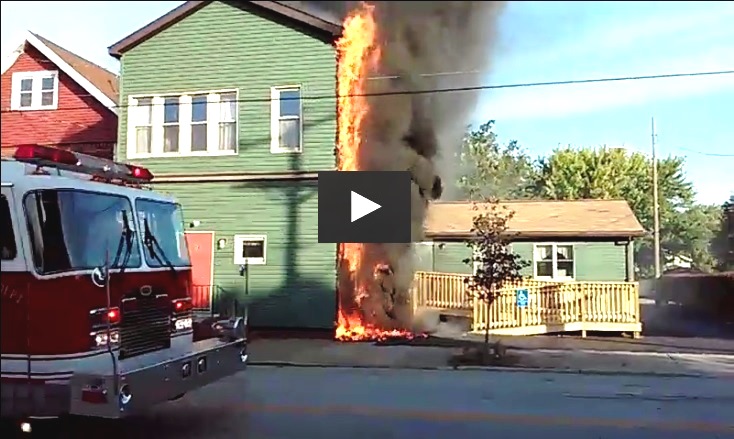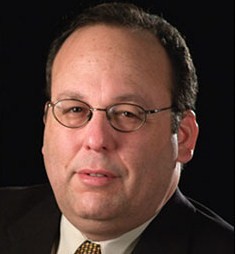Police vs. news photographer: Confrontation in Hillsborough County, Florida caught on video.
Read Where's the outrage? Dave thnks the Moscow videos prove his point that hatred of the press trumps victims' rights
Previous coverage & discussion of cameras at incident scenes can be found here, here, here, here, here, here & here
This is a news photographer's view of a confrontation he had on Monday with deputies from Florida's Hillsborough County Sheriff's Office. The photographer says he had gone to a neighborhood where an apprehension had been made following a stabbing at a convenience store. Ryan French, the photographer, has his account of this run in on the web site of TampaBayMediaGroup.com.
To me, it is typical of SOME of the interactions that occur across the country between the news media and public safety officials. It's an interesting follow-up to my posting last week that looked at the confrontation last December between a Connecticut State trooper and a photographer at the scene of a fatal crash and vehicle fire.
I am very aware we only have one side of this story and we should always be cautious when drawing conclusions. But there are a few things that are clearly said by the sheriff's deputies, including supervisors, that don't need much interpretation and, to my knowledge, go beyond the powers this country gives to law enforcement. These include: ordering a photographer not to take pictures from a certain vantage point because the homeowners don't want their houses shot; deciding when a videographer can and can't roll his camera; telling a photographer he can't take pictures of police officers doing their jobs.
While, in general, I have absolute respect for the job police officers and others in public safety do, I admit my bias in these issues. As a news reporter I was told by many people, including law enforcement, that I couldn't take pictures of something that was in public view while standing in a public place. My bias is that I am very much pro-First Amendment and know that, in the United States, decisions like those aren't to be left in the hands of police officers, firefighters or any other government official. But there are many other countries where people in uniform do make those choices for you.
That said, when asked to make sure that the images of witnesses or undercover officers whose safety may be in jeopardy not be shown, I always cooperated by shooting or editing around those images. Also, when given a legitimate explanation by law enforcement that a case would be jeopardized by information or images being released, my bosses and I cooperated. I saw similar cooperation by the other TV stations in Washington.
But orders to shut off our cameras in a public place were almost always ignored. Often we did that for our own protection. In one case the video evidence showed a police officer was not telling the truth when my colleague, photographer Frank McDermott, was arrested at the scene of a drowning at a Virginia hotel many years ago. When the officer's supervisors saw the video (it was still rolling when the police officer placed the camera in the trunk of the police car following Frank's arrest), the charges were suddenly dropped and the officer found himself in quite a bit of trouble.
Let me close with some interesting words a Statter911.com reader wrote in a comment a few days back about the Connecticut video from December:
I don't like the media, but will defend it just as I will the 2nd Amendment. I still think the trooper was flat out wrong, as were the comments that attempted to justify his actions.
There's a reason the first amendment is first and is followed by the second. If gov't attempts to eliminate the freedom of speech, press, to gather, etc, then we have to fall back on our second amendment rights.







